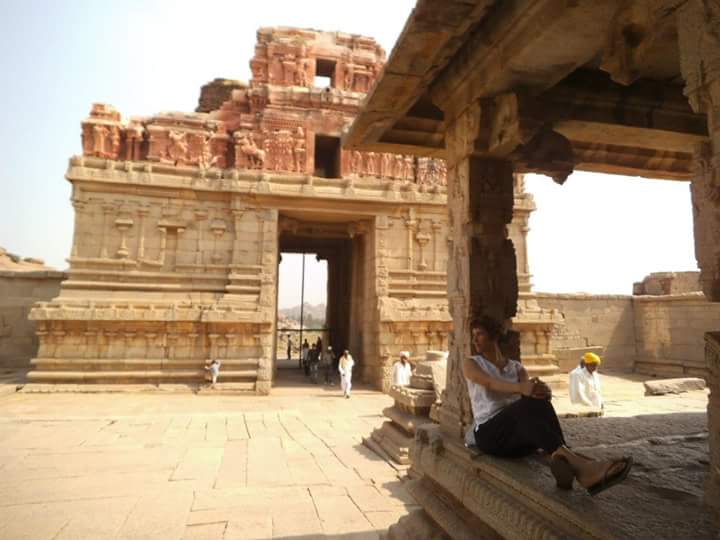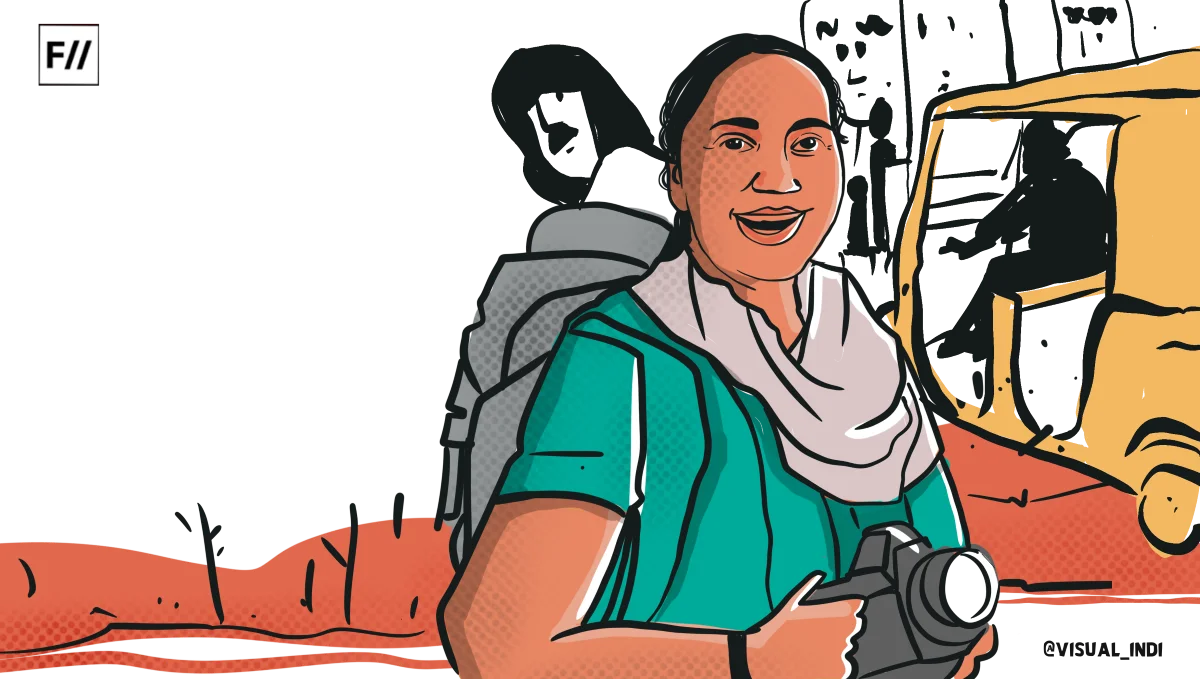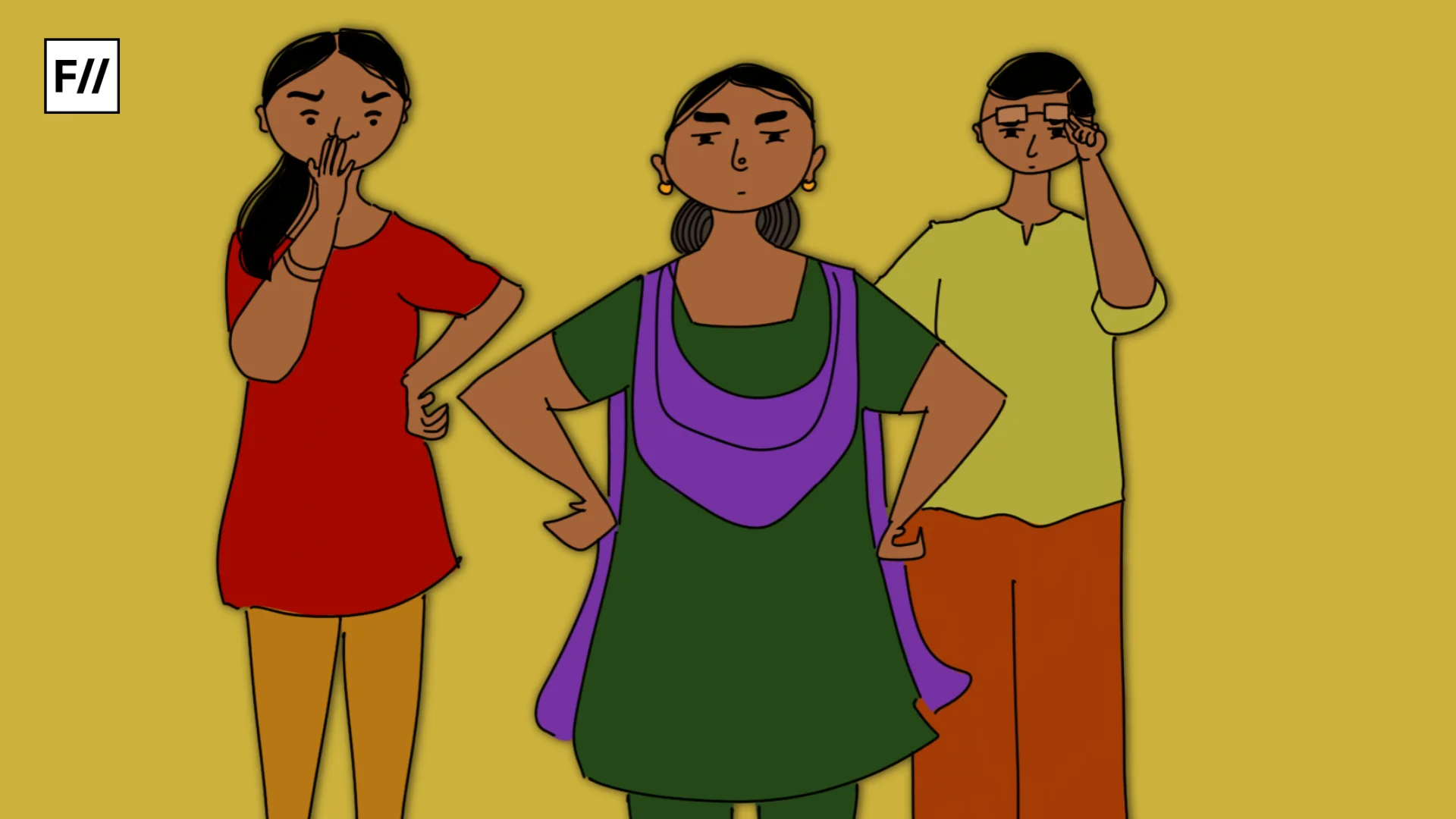My decision to travel literally saved my life. Traveling helped me escape the
insidious, North Indian, Brahminical patriarchy that traps many educated, lower/middle
class women within codes of “honour”, thereby shutting off all venues of exploration and
self-fulfillment that might lay outside of (heteronormative) caste matrimony. It saved me
from physical violence of my natal family and the emotional torture of a failed forced
marriage. It enabled me to find love, family, and a career in academia in a beautiful city
that has since become my second home – Istanbul, Turkey.
And yet it would be a blatant lie to say that at the age of 39, after having fought
patriarchy so intensely throughout my 20s and 30s, after having escaped to Istanbul, and
after having had children in an interracial relationship of my choice, I have totally
escaped the patriarchal gaze and the potential perils it carries. Blame it on naiveté or
years of living abroad on my own terms, but it was only during a recent trip to Delhi as a
doctoral fellow from a US university that I realized that education, a sociable personality,
and being an older married woman with kids, can still not guarantee immunity from
patriarchy and potential violence.
Traveling helped me escape the insidious, North Indian, Brahminical patriarchy.
If anything, 39-year-old married, North Indian, upper class upper caste women from “good” families don’t really pursue their dreams of doing a Ph.D. from US universities, and they certainly don’t leave their children with their husbands to go for fieldwork. This
patriarchal mindset was clear enough in the comments of the upper middle class, 38-year-
old, Delhi housewife in Defence Colony, whose place I had reserved through AirBnB.
“So your husband is looking after your kids now? You are so lucky!” or “Wow, he lets
you travel alone!” I could go on.
One of the ways patriarchy operates, as feminists have highlighted for decades
now, is through policing of female sexuality. However, policing is as much psychological
as physical and as much internalized by women themselves as their fathers, mothers,
uncles, chowkidars, and everyone else who enforce it.
Also read: A 101 Introduction To Internalized Misogyny
As an academic in the field of feminist studies, I was shocked to see how my own deeply ingrained internal mechanisms of control and portrayal of “good” womanhood were still in place. Ironically, maybe exactly because of the fact that I now study gender and sexuality for a living, I could see the way my hosts were judging me, which made me self-conscious of my own actions.
An example: the first night of my arrival, I went to a bar to catch up with a cousin
I hadn’t seen in thirteen years. My hostess very graciously dropped me at this place and
although she didn’t say anything, I felt obliged to check, “Is it ok if I am a bit late?“. But
her response, outwardly a relaxed one, “Of course! You are on holiday, enjoy (wink)!“
left me feeling a bit uncomfortable. Hard as she tried to fit into her adopted persona of a
well travelled, modern, upper middle class housewife, I could almost hear her
psychological rejection of what I stood for.
The following day I was told off by her for letting my 25-year-old female cousin come and stay the night with me (for ‘security’ reasons, which were precisely my reasons for not letting my cousin go home by herself past midnight!) and was asked to provide my passport for scanning (just in case).
One of the ways patriarchy operates, as feminists have highlighted for decades now, is through policing of female sexuality.
As I said I could go on, but I will end with perhaps the most disturbing anecdote.
For the first 3 days of my stay in Delhi, I had only interacted with my hostess. My host
and hostess live in Noida, but when they get an AirBnB reservation for their place in Defence Colony, it is my hostess who typically goes to welcome the guests, while the
host stays on in Noida for work, only to visit the place over the weekend. I, unfortunately,
happened to be there over the weekend and thus had the misfortune of meeting him.
My host represented all the worst qualities of a hyper-masculine, spoilt, rich,
American educated, upper middle class, North Indian brat. Asking and answering his
own questions well into the night and constantly passing comments on my ‘short’ dress,
he talked over his wife and me first at a bar (I must thank him for the drinks) and later at
their home. He hailed Delhi NCR for its wonderful infrastructure, while continuously
attacking the ‘Indian’ mentality that unlike the ‘American’ psyche, was messed up. He
went on to give signs of his truly ‘progressive’ American psyche by saying,
“Why do these white girls, knowing Delhi is unsafe, wear short clothes? I mean we are
obsessed with white skin. I mean then if some thing happens to them…” They were
asking for it, of course. Sigh.
However, this wasn’t the most disturbing part that I mentioned earlier. And I
should probably skip it. It will suffice to say that I left Delhi physically intact but with a
few mental and emotional scars; flashbacks of violent patriarchal pasts mixed with relief
of having escaped a similar future. Had I not travelled, had I not escaped a loveless
marriage, had I not made friends from around the world, had I not fallen in love with
William, had I not enrolled myself at university, and finally, had I not had my two
beautiful children, I could have been my AirBnB hostess – cooking Indian food in olive
oil, complaining about Muslims, and treating her domestic help as less than human.
And as I let that sink in, I ask myself, would I change anything the next time I
travel alone for fieldwork? Absolutely. I will be more careful about where I stay and who
I stay with. As to how long will I keep on travelling solo? Forever, hopefully, until I die.
Also read: My Experiences of Solo Travelling: Why I Travel Solo And Why Should You Too
Featured Image Credit: Akanksha Misra
About the author(s)
Akanksha is a doctoral candidate at the Department of Gender, Women and Sexuality Studies, University of Washington, Seattle. She is currently on an American Institute of Indian Studies fellowship to conduct her research on desire, sexuality and citizenship in schools in India and Turkey. She loves traveling, dancing and reading and is based in Secunderabad with her spouse and two kids.




